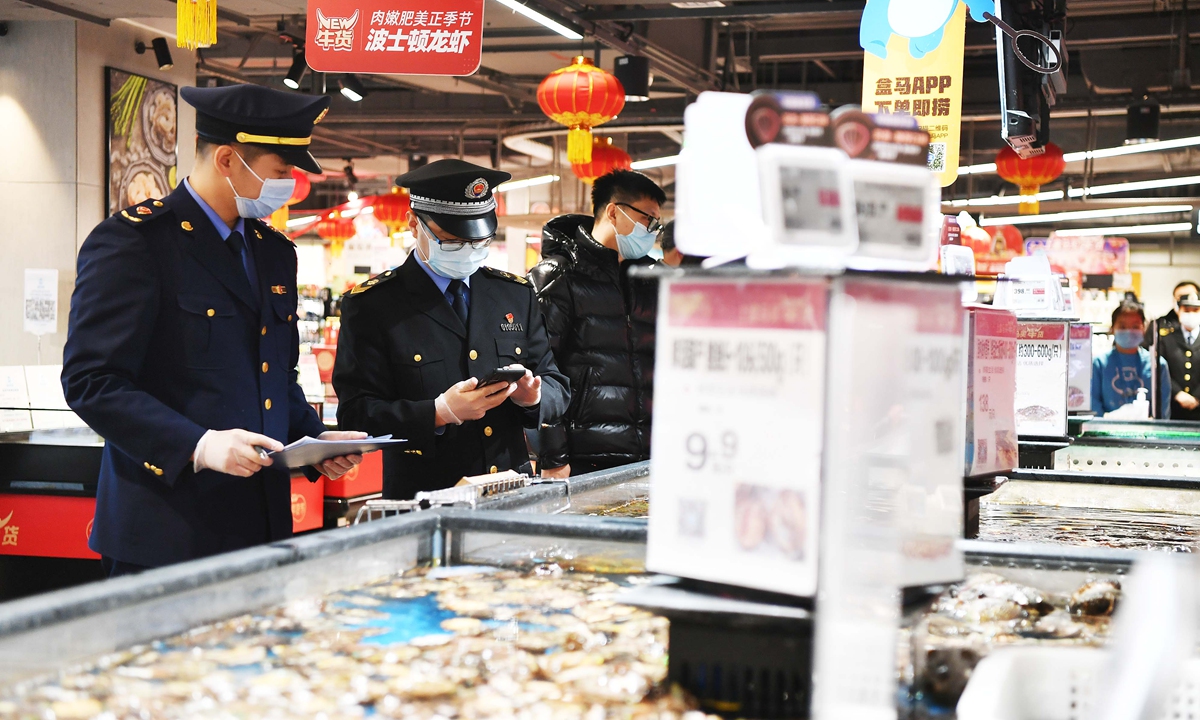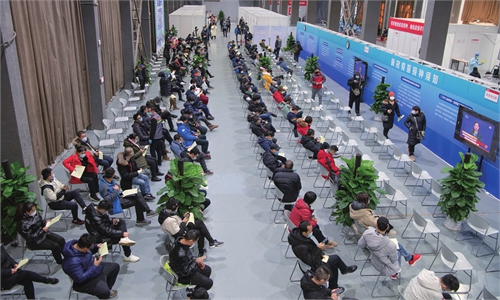Update: Beijing reports 12 COVID infections in 24 hours, all related to cold-chain storage handling imported food

Photo: CFP
Beijing on Saturday registered nine new COVID-19 confirmed patients and three silent carriers in the past 24 hours from 4 pm Friday, all related to cold-chain storage facilities, city authorities revealed.
All the newly infected are employees at or connected to a cold-chain storage or a nearby storage for fruits. Both facilities are located in Fengtai district in the southwest part of the city.
The two cold-chain storage facilities, residential buildings where the infected people lived, and a restaurant multiple patients had been to were sealed off. The people are under 14 days of home quarantine and seven days of health monitoring.
Three nearby communities are testing all residents to screen out potential virus carriers. City health authorities asked residents who have been to the two facilities and other places the confirmed cases visited to notify officials and take nucleic acid tests.
Fengtai district has enhanced management of the cold chain by requiring relevant personnel to hold a negative nucleic acid test certificate valid within three days instead of the previously stipulated seven days. Spot checks of cold-chain products are increased to 600 samples a week and the inspection of the 10 cold storage and five wholesales markets in Fengtai has been heightened.
Fengtai is the district where the Xinfadi market, which saw a massive resurgence in mid-2020, is located.
The Xinanjiao storage, at the center of the latest cases, is located within Beijing's third ring road, which is around 8 kilometers to the city's core areas and much closer than Xinfadi, and has a capacity of 45,000 tons.
A wholesaler who works at a meat and seafood market affiliated with the Xinanjiao storage told the Global Times on condition of anonymity that the storage and the market mainly run business of frozen food, including imported frozen meat and seafood.
The prices are lower than other wholesale markets of similar proximity to city center so the market is popular among canteens, smaller markets and restaurants, the Global Times learned.
Another involved storage, the Yuquanying market, is a fresh cold-chain storage for fruits which is only hundreds of meters away from Xinanjiao.
It is so far unclear what kind of fruits the related patients had handled at the Yuquanying market, but imported fruits, including dragon fruit from Vietnam and cherries from Chile, had tested positive for COVID-19 before in other markets.
Considering the scale of the cold-chain storage and its role in supplying food for the capital city, timely screening and control measures are necessary to cut off the infection chain and restore normal business as soon as possible, a Beijing-based public health expert told the Global Times, saying Beijing has the experience of battling the Xinfadi market resurgence and will curb the new round of flare-up soon.
Beijing authorities on Friday also revealed some cases that violated epidemic control rules, including a wholesaler who replaced labels of imported seafood products from Southeast Asia with domestic tags in order to evade supervision on imported cold-chain products, which risked spreading the coronavirus.
China on Friday registered 23 domestically transmitted COVID-19 infections and 40 imported cases. In addition to the 10 Beijing cases, six were reported in Tianjin, four in Henan and three in Guangdong.
Since January 15, Beijing has reported 34 COVID-19 infections, 21 in Fengtai district.

